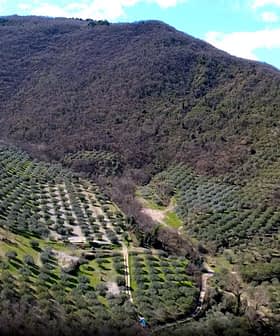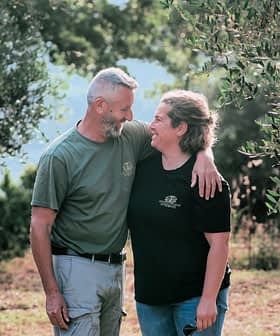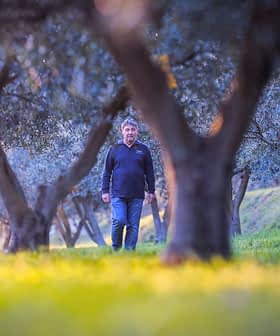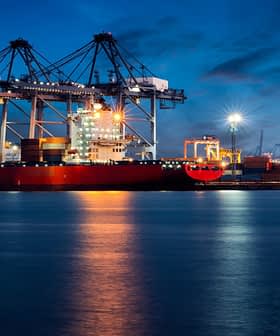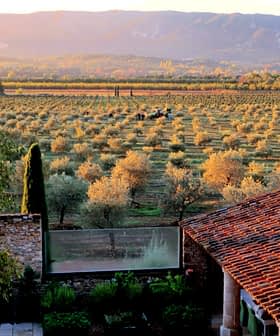Award-Winning Chilean Producer Eyes Lucrative Brazilian Market
Las Doscientos capitalizes on its reputation for quality and free trade advantage to expand its market share in Brazil.
 The Maule Valley boasts excellent olive-growing conditions, allowing Las Doscientos to become one of Chile's top exporters.
The Maule Valley boasts excellent olive-growing conditions, allowing Las Doscientos to become one of Chile's top exporters. Over the past 15 years, Chile has seen a significant increase in olive oil production and exports, with Las Doscientos leading the way in the Maule Valley. The company has expanded its olive groves, focused on intensive farming, and primarily exports to Brazil due to tariff advantages and logistical benefits.
Over the past 15 years, no country has seen olive oil production and exports increase as quickly as Chile.
According to data from the International Olive Council and producer association ChileOliva, production skyrocketed from 5,000 tons in the 2006/07 crop year to 21,000 tons in the 2022/23 crop year.
Over the same period, exports have risen from 1,000 tons to an estimated 16,000 tons, a 1,500-percent increase.
Located in the Maule Valley, about three hours south of Santiago, Las Doscientos has been in the vanguard of Chilean production and exports.
See Also:Producer ProfilesThe company started in 2005 by purchasing the first 200 hectares of land, later planted with Arbequina, Picual and Frantoio.
“At that time, there was not much information in Chile because there were no olive oil plantations, there were table olive plantations further north, and there were a few other companies already in the olive oil business, but there was no more than that,” José Pablo Illanes, general manager of Las Doscientos and director at ChileOliva, told Olive Oil Times.
However, the location in the valley, near Talca, proved to have a suitable microclimate for olives. The region was already becoming well-known for local wine production and received a Protected Geographical Indication certification from the European Union in 2003.
An engineer by training, Illanes joined Las Doscientos after working in finance and international trade.

José Pablo Illanes came to Las Doscientos after a career in international trade and exports.
“And through those turns in the road, I entered the world of olive oil,” he said. “I had to develop our olive oil brand when Chile didn’t have a reputation as a country of olive oil producers. We were recognized for the wine, fruit and salmon, but not for olive oil.”
“I saw this as a titanic battle of how to convince the consumer and the public that Chile was a good producer,” Illanes added. “I think that throughout all these years, we have a brand that is positioned and recognized not only in Chile but in the larger global market.”
Las Doscientos found quick success and bought about 300 hectares to plant more olive trees in 2008. Now, the company has 700 hectares of olive groves.
Like many New World olive oil producers, the company has grown chiefly at intensive farming to achieve economies of scale. Roughly 60 percent of the company’s groves are Arbequina, with 20 percent each for Picual and Frantoio.
Intensive farming
Intensive, or high-density, farming is a method of olive cultivation that aims to maximize production per hectare of land. This is achieved by planting trees at high density, using irrigation and fertilization, and mechanizing as many of the farming practices as possible.
Intensive agriculture is typically practiced on large-scale commercial farms. The olive trees are planted in rows with narrow spacing between them, which allows for more trees to be planted per hectare. The trees are also trained to grow in a specific, uniform shape, which makes it easier to harvest them mechanically.
Intensive farming requires a significant investment in irrigation and fertilization. The olive trees need to be watered regularly, especially during the summer months. The soil needs to be fertilized to ensure that the trees have the nutrients they need to produce a heavy crop of olives.
Intensive olive farming is a controversial practice. Some argue it can lead to soil erosion, water pollution, and biodiversity loss. Others say it is necessary to efficiently meet the growing demand for olive oil.
Approximately 80 percent of the groves are mechanized, with the remaining 20 percent located in terrain too tricky to mechanize and harvested traditionally. As a result, the company usually does not struggle to find enough workers during the harvest.
“At the same time, we built a wonderful mill with the latest technology,” Illanes said. “The first olive oil sales began in 2009 when we placed a small volume of olive oil in local supermarkets, and then in 2012 onwards, we began exporting.”

Las Doscientos is named after a reservoir near Talca, a popular destination in the Maule Valley.
According to Illanes, Brazil is the primary destination for exports from Las Doscientos and many other Chilean producers. Brazil is one of the world’s ten largest olive oil consumers, with the vast majority supplied by imports.
“We are the second largest exporter of olive oil to Brazil with more than ten clients in on and off-trade,” he said. On-trade refers to restaurants, and off-trade refers to supermarkets and specialty stores.
The company exports to more than 12 countries, including Bolivia, Colombia, Mexico, Russia, the United States and Uruguay, but Illanes said his main focus is on Brazil.
“Our focus has been mainly on the Brazilian market, which has a constant demand and a very good appreciation of extra virgin olive oil,” he said.
He added that Chilean producers have a competitive advantage in Brazil since most European countries pay a 10 percent tariff on their olive oil exports while Chilean producers benefit from a free trade agreement.
“Apart from the tariff advantages, there are logistical advantages,” Illanes said. “It takes a week for a truck to go from our mill to supermarket shelves in the south of Brazil or São Paulo.”
Even if the long-touted E.U.-Mercosur free trade agreement is signed, he is not worried about increased competition. Brazil is a South American free trade group member, while Chile is not.
Illanes estimates that Chilean exports make up roughly five percent of Brazilian imports and see plenty of room for competition.
“If the tariff changes, it will not affect Chilean imports because the Brazilian consumer already recognizes Chilean olive oil as a very high-quality product,” he said. “I believe that olive oil exports will continue to grow.”
Winning international quality awards, including a Gold and Silver Award at the 2023 NYIOOC World Olive Oil Competition and local awards in Brazil, improve the company’s prospects as an exporter, Illanes said.
Since Brazil passed its labeling law in 2016, he said awards and other types of recognition have become very important for Brazilian consumers.
Along with exports, Illanes said Las Doscientos is also one of the leading brands in Chile. He estimates Chilean olive oil production satisfies about 90 percent of domestic demand.
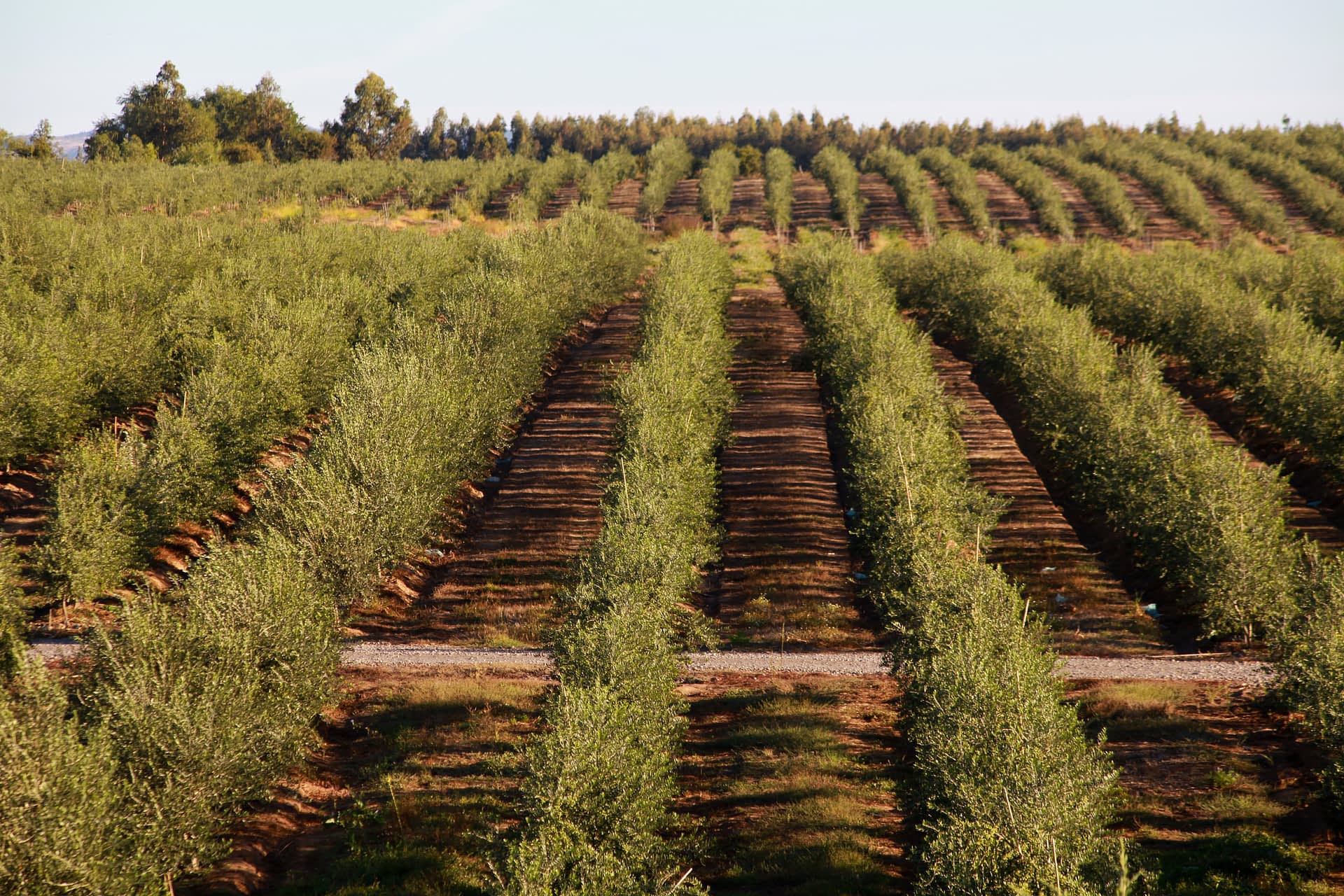
Las Doscientos has 700 hectares planted high-density and has plans for 500 more.
Still, Illanes said there is plenty of work to educate Chilean consumers, as per capita consumption remains relatively low. According to the International Olive Council, Chile will consume 9,500 tons of olive oil in 2022/23. The country has a population of about 18.5 million people.
“What could happen in Chile with olive oil may be what happened with wine,” he said. “Twenty years ago, Chileans either drank white or red wine. Now, they drink Cabernet Sauvignon or Carmenere.”
“These awards are valuable for us both in the Chilean and export markets,” Illanes added.
He said winning international quality awards helps producers from non-traditional countries establish the same name recognition that olive oil brands from Spain, Italy and Greece enjoy.
“Our strategy is to educate consumers so they can understand – similarly to wine – what is the difference between an Arbequina, Picual and Frantoio,” he said. “To this end, we have been using social media.”
Illanes added that many Chileans consume olive oil blends, and his company seeks to educate consumers about monovarietals. By understanding the different organoleptic qualities of monovarietals, consumers can begin to develop preferences for olive oil as they would for wine.
For Illanes and Las Doscientos, this year’s NYIOOC awards capped off a successful harvest, and he is looking forward to another productive year in 2024.
“The overall harvest in Chile was very good,” he said. “The harvest was much better than last year.”
In 2022, a severe frost in May, just as the harvest began, resulted in a significant drop in production. Illares estimated the reduction to be about 20 percent.
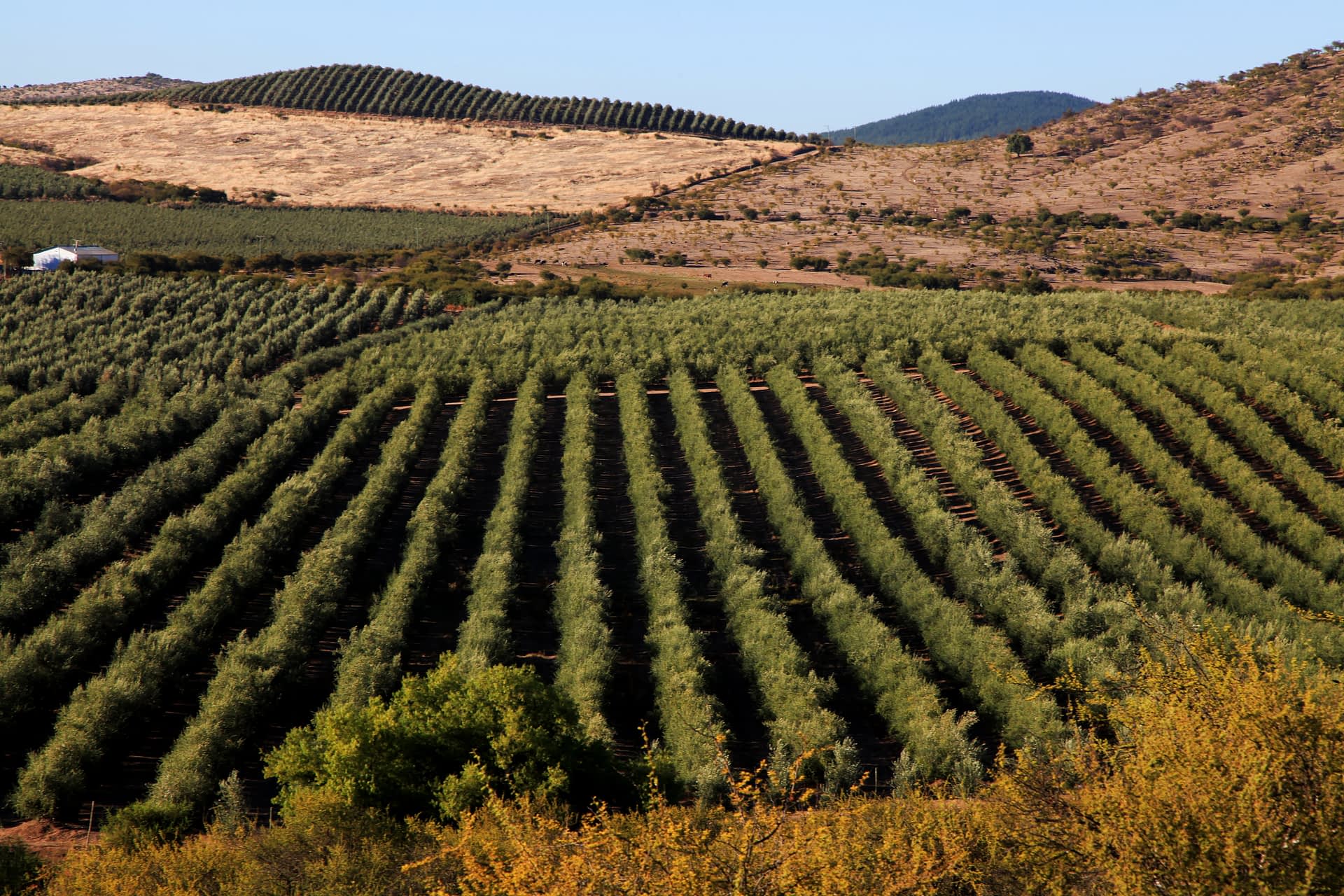
This summer’s weather conditions will play a significant role in determining how the harvest goes.
“This year, the weather was with us, which is essential for a good harvest, and the yields, in our case, were very high,” Illanes said.
Illanes said the Maule Valley had received plenty of rain, refilling reservoirs and other aquifers before the harvest.
“We are confident that in 2024, we will achieve a harvest equal to or better than the one we already had,” he said. However, he noted that this summer’s weather conditions – summer runs from December through March in the Southern Hemisphere – would play a significant role in determining how the next harvest evolves.
Looking ahead, Illanes believes that Las Doscientos must continue to grow to meet rising demand in South America, especially Brazil while educating consumers in Chile to develop its olive oil culture.
“The main challenge for our company is to continue growing,” Illanes said. “We want to reach an approximate surface area of 1,200 hectares. We want to sell more than 3 million liters of oil.”
“Today, we are selling 1.7 million liters,” he concluded. “To achieve this, the challenges are to invest in surface area planted, machinery and continue promoting our brand, which, after many years, we already consider to be very consolidated in the market.”
Share this article



